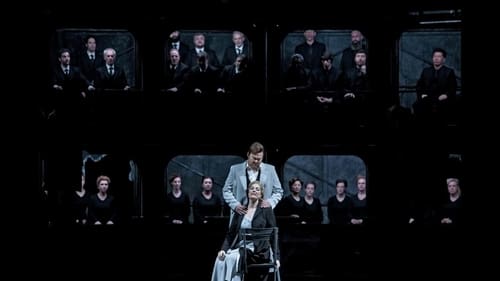
Webers great heroic-romantic opera Euryanthe premiered in Vienna in 1823. It concerns the wronged Euryanthe, victim of a plot to establish her unfaithfulness, but her love imbues her with colossal strength which Weber characterizes with acute psychological insight. Through-composed and dispensing with spoken dialogue, its chivalric plot provides opportunities for a series of arias, ariosos, duets, cavatinas and choruses that contain some of his greatest operatic music. This production employs the operas original version with a few, very minor cuts.

Kurwenal
Tristan, King Marke’s most loyal vassal, takes the Irish princess Isolde to Cornwall to be married off to his master. During the journey, Isolde uses a deadly poison in an attempt to extinguish the intense but unspoken love between her and Tristan that had arisen beforehand. Isolde’s confidante Brangäne, however, replaces the poison with a love potion. From that moment, Tristan and Isolde become inseparably linked. Their secret love is soon betrayed to King Marke by the jealous Melot, who also fatally wounds Tristan. He is brought to his island, longing for one final meeting with Isolde before he dies. When she eventually comes, he himself pulls open his wound and collapses in her arms. Isolde follows him, dying in the most sublime ecstasy.

Friedrich von Telramund
‘In reality, this Lohengrin is an entirely new phenomenon for the modern consciousness!’ Richard Wagner himself understood the innovative character of his sixth piece of music theatre, completed in 1848, the year of revolutions. Although it is reckoned among his ‘romantic operas’, his new vision of musical drama is already clearly heralded in this work. In his hands, the mediaeval saga of the Knight of the Swan becomes a meditation on the true love that asks no questions. Alain Altinoglu, our Music Director, who has already conducted this work in Bayreuth, guarantees the quality of the music, while the director Olivier Py, known at La Monnaie for his brilliant productions of Les Huguenots and Hamlet, can be relied on not to downplay Wagner’s revolutionary political side. Wagner’s own opinion was that ‘one can only understand Lohengrin if one can liberate oneself from any modern-looking, generalising form of representation so as to see the phenomena of real life’. A challenge to us all?

Fenice
Here is a rare and exceptional example in which the director and costume designer amuse themselves with `silly' costumes, but it actually works. I usually loath the stupid concept of 'clever' producers' of dressing opera singers in an motley set of `modern' and bizarre costumes (mostly tasteless) to help the `stupid' spectators to understand the universality of the opera across time and place. However, in this particular production I enjoyed every moment of it. All my reservations withstanding, I found that the costumes have actually helped highlight the `buffa' aspects of this supposedly `siria' opera. This work may not be among Handel's greatest masterpieces, but the way it is presented and sung here makes it a thorough pleasure for the senses.

Jonathan Kent's spectacular production of Purcell's huge semi-opera is joyous, imaginative and witty. Glyndebourne, with its intimate auditorium, provides the perfect setting for the drama which is partly spoken and partly sun. Based on an adaptation of Shakespeare's A Midsummer Night's Dream,

Badger (voice) (as A. Foster-Williams)
An adaptation of Leos Janacek's opera Prihody Lisky Bystrousky (1925), based on the novel Liska Bystrouska by Rudolf Tesnohlidek. It follows the life of Sharp-Ears, a fox who is captured by a forester as a cub and raised in his home prior to escaping back into the forest.





